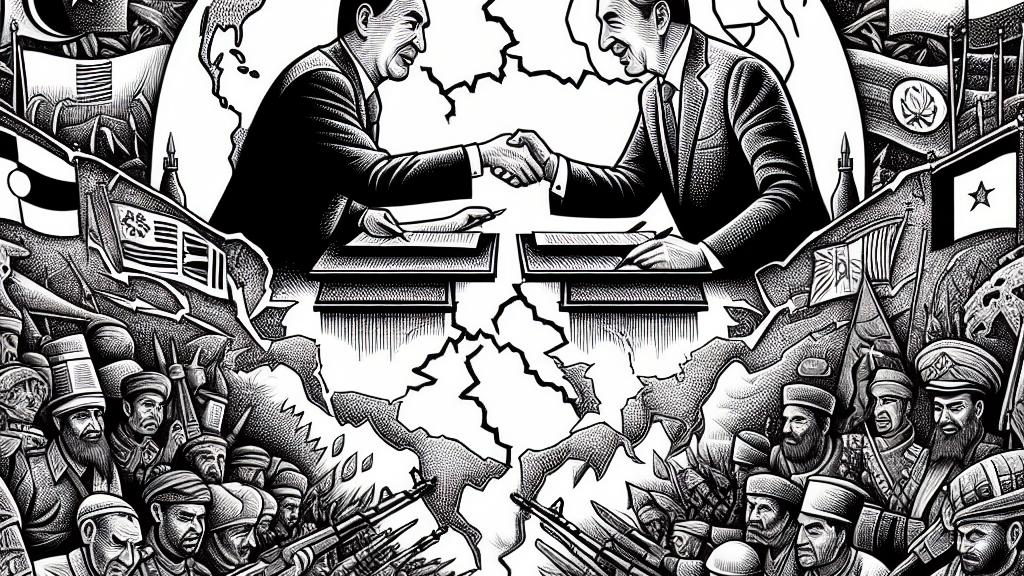Understanding Russia's Relationships with North Korea and Iran
Overview
- Russia's partnerships with North Korea and Iran reveal strikingly different diplomatic strategies.
- Despite a shared opposition to Western influence, their treaty goals diverge significantly.
- While North Korea prioritizes urgent military support, Iran seeks a foundation for long-term economic growth.

Introduction to Russia's Alliances
In January 2025, an important diplomatic milestone occurred when Russian President Vladimir Putin and Iranian President Masoud Pezeshkian signed a comprehensive strategic partnership treaty in Moscow. This agreement, which many praised as a major leap forward, marks a significant deepening of the relationships between the two nations, especially as they grapple with harsh international sanctions. Furthermore, only a few months prior, Russia and North Korea had ratified their own treaty, focused heavily on military cooperation. Together, these developments illustrate Russia's strategy to reshape its alliances in a world that increasingly isolates it, showcasing its distinct approaches toward different partners.
Exploring the Treaty Differences
At first glance, the treaties with both Iran and North Korea might appear similar because they both emphasize a reluctance to follow Western dictates and a desire for a multipolar world. However, delve deeper, and you'll uncover fascinating contrasts. For example, the treaty with Iran is designed for broad economic and political collaboration, paving the path for mutual prosperity in the future. In stark contrast, the agreement with North Korea hones in on immediate security issues, revealing a more reactionary relationship. This distinguishing characteristic is key to understanding how Russia navigates its complex diplomacy, prioritizing alliances based on each nation's strategic importance.
Military Aid and Legal Flexibility
One striking element of the Russia-North Korea treaty is its explicit commitment to mutual military aid. By invoking Article 51 of the United Nations Charter, this treaty not only legitimizes military assistance but also provides a structured legal framework for cooperation. This setup allows both nations to navigate their commitments more fluidly. While they are united in defense, Russia smartly avoids being completely tied to North Korea's military agenda, maintaining a level of autonomy that is crucial in today's shifting global landscape. This careful balance exemplifies diplomatic agility, allowing Russia to explore opportunities without overcommitting.
Strategic Goals in a Multipolar World
The differing nature of the treaties with Iran and North Korea offers a vivid insight into Russia's strategic positioning in an ever-evolving multipolar world. Concerns about Western hegemony have drawn both North Korea and Iran closer to Russia, but the unique goals of each nation shape the framework of their alliances. For instance, North Korea's demands for urgent military collaboration stem from its pressing security threats, where immediate partnerships are critical. In contrast, Iran's aspirations focus on building durable economic connections and long-term political cooperation to foster a more stable future. This sophisticated approach underscores Russia's adaptability and strategic vision, emphasizing its commitment to solidifying its role on the world’s stage while navigating tumultuous geopolitical waters.

Loading...